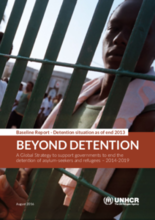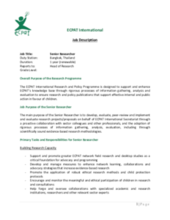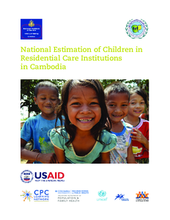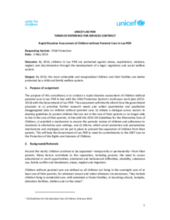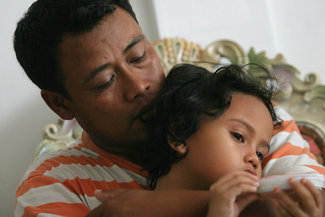

Displaying 441 - 450 of 753
This chapter explores issues of children’s agency and participation in anti-trafficking interventions with children trafficked for exploitative labor in Vietnam.
Global Strategy – Beyond Detention 2014-2019 is a document released by UNHCR, which aims to support governments to end the detention of asylum-seekers and refugees.
A video campaign on family based care that is being displayed in a major chain of cinemas in Indonesia. The video contains a message on the importance of family based care for children by representatives of all religious leaders and the Ministry of Social Affairs.
This article and video discuss how thousands of Australians consider visiting orphanages to be a popular activity to do on vacation. Vacationers will visit orphanages, meet children, and take photos. The visit usually ends with a request for donations. Some believe that they are positively contributing to improvement of these children’s lives.
This video highlights the importance of keeping children with families.
ECPAT International is seeking a Senior Researcher for its International Research and Policy Programme in Bangkok, Thailand.
UNICEF is seeking a Child Protection Specialist to be based in Yangon, Myanmar.
According to the article, the ChildSafe Movement has now “revamped” its company certification, which recognizes tourism companies for their dedication to child protection and commitment to ChildSafe’s 7 Standards by granting them a “ChildSafe Certification.”
This document discusses how there is increasing international mobilization around the importance of family care for optimal child development.
The purpose of this consultancy is to conduct a rapid situation assessment of children without parental care in Lao PDR in line with the Child Protection Section’s multi-year work plan (2015- 2016) with the Government of Lao PDR.

